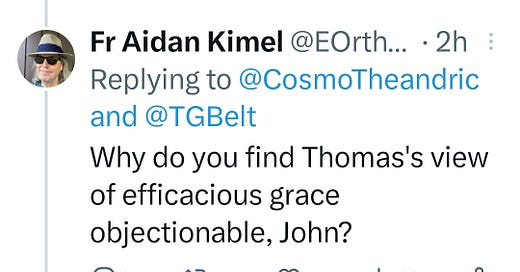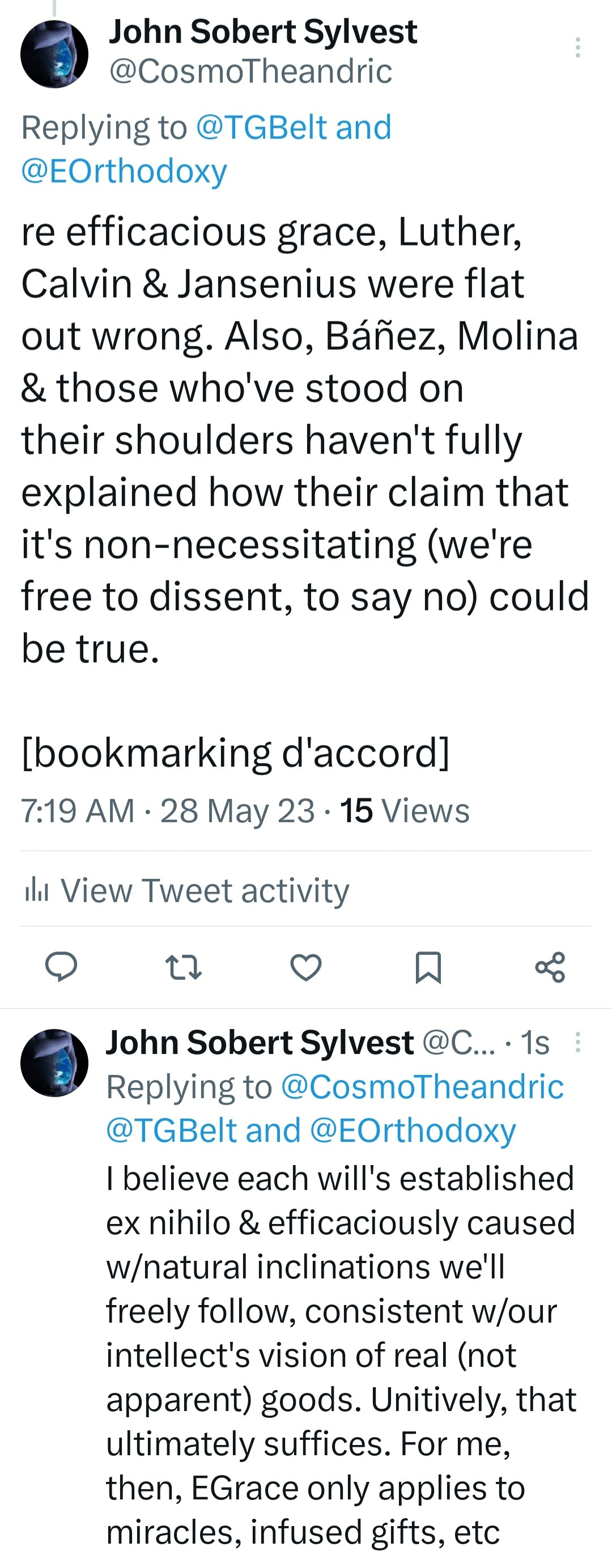The Compatibilist Freedom of Apocatastasis & Libertarian Autonomy of Epectasy
My understanding of apocatastasis relies on compatabilist intuitions regarding human freedom & divine determination. My approach to eternal epectasis relies on libertarian intuitions regarding human autonomy.
Metaphysically, I focus abstractly on the essential limitations of our free choices.
Existentially, I focus concretely on our personal autonomy among those choices.
Per our natural freedom, as essentially limited, one could not freely refuse a love of God for sake of self. One would naturally be, at least, imperfectly contrite.
However, per our personal autonomy, as otherwise unlimited, one could otherwise refuse a love of God for God’s sake.
For example, one could choose not to grow in divine intimacy, not to aspire to higher degrees of Bernardian love or Ignatian humility, not to be perfectly contrite or more holy.
Still, in my present take, once anyone’s gifted an immediate beatific vision (rather than only mediated divine presences), I lean toward saying that —
while “all could” (metaphysically & abstractly) refuse to grow in divine intimacy,
for all practical purposes, “none would” (existentially & concretely) in that context.
Personal Note: I was taught in my earliest catechism classes that our imperfect contrition would suffice to get us into heaven. God wouldn’t require more of us. Later, as a parent & grandparent, regarding how God could delight in simply making us happy, I would come to totally get it. I’ve been rather easily satisfied by my children & grandchildren attaining an enlightened self-interest, by their avoiding ill being and attaining an essential well being.
For the existentialist, not only is the relationship between freedom & determination – not a metaphysical problem, but – a personal mystery, freedom refers to I-Thou-ness, while determination refers to I-it-ness. Thus the whole matter can so often be wrongly considered. It’s our mutually-constituted I-Thou-ness that gifts our universalist intuition.





